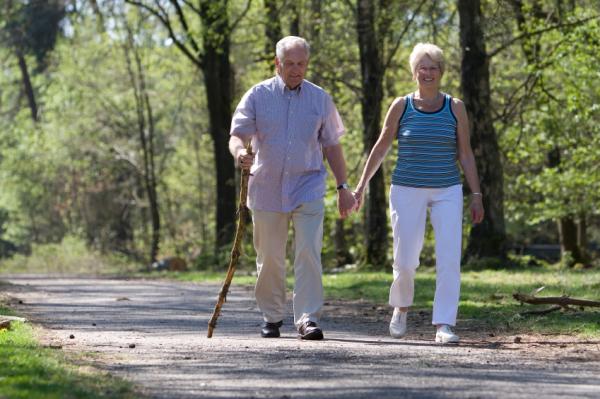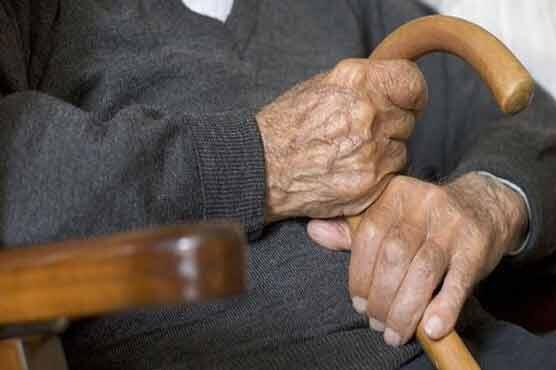 Scientists are hopeful of a breakthrough in dementia within five years – with drugs that could be given to prevent disease
Scientists are hopeful of a breakthrough in dementia within five years – with drugs that could be given to prevent disease
Scientists are hopeful of a breakthrough in dementia within five years – with drugs that could be given preventively to delay the onset of disease.
Researchers say a new drug has shown some promise in patients with mild dementia, and might be yet more effective if given to those at risk of disease long before they show any symptoms.
Dr Eric Karran, director of research at Alzheimer’s Research UK, said scientists were “full of hope” that a breakthrough in drug therapy to prevent dementia could come within five years.
If further trials on the drug succeed, it could mean that those with a family history of dementia are given monthly injections of the drug a decade before any signs of disease show – in the same way that millions of people now take statins to ward off heart disease, he said.
Speaking ahead of a G8 summit next week on dementia, Dr Karran said trials have suggested that a drug called solanezumab may delay the onset of disease, halting problems with brain function and behaviour in those with mild dementia.
The studies originally tested the drug on patients with mild to moderate dementia, where the treatement did not achieve effective results.
But when analysis examined the impact of the drug only on those with mild dementia, researchers found it had an effect both on their daily behaviour and the functioning of their brain and memory.
Now researchers in the US are recruiting to a new study which will examine the impact only on patients with mild dementia.
If the trials prove that the drugs work, it would be “logical” to prescribe them to patients preventively, Dr Karran said, given that changes in the brain associated with dementia occur as far as a decade before symptoms are shown.
Dr Karran said the promise from the drug, and from two other treatments now undergoing trials, left him optimistic that a breakthrough is on the horizon, despite years of disappointment in the field of dementia research.
He said: “I am full of hope that we are going to have a breakthrough in five years.”
If trials on sufferers with mild dementia succeed, “there is a logic” to use the drug therapies at least a decade earlier, to prevent the onset of dementia, he said, in the same way that statins have been widely prescribed for those at risk of heart attacks and strokes.
“That’s exactly the path that blood pressure-lowering agents have taken – people taking them before they have a stroke,” he said. “It’s the path that’s been taken with statins which first showed efficacy against the disease and then you go earlier. That has to be the pathway we take. There is very very good human genetic data which shows that if you can effect this amyloid early on – and only modestly – you have the potential to dealy the onset of that disease very significantly indeed.”
Currently, the only drugs used for dementia can mask symptoms, but do not delay the onset of disease.
Brain scans have found that changes in the brains of patients with diseases such as Alzheimer’s can occur a decade before you have symptoms.
Providing people with anti-body drugs five or 10 years before the condition would otherwise develop could have a “drastic impact” on prevalence of disease, he said.
Dr Doug Brown, director of research and development for the Alzheimer’s Society, said: “If we can delay the onset by five years we could probably cut the numbers with dementia in yhalf – and recent research evidence suggests this could be a possibility.”
Prof Nick Fox, from the Institute of Neurology, at University College London, said that preventing disease before symptoms were present offered the best “window of opportuntity” to halt the impact of disease.
He said: “Let’s just hope that we can slow the devastation at the stage when there is much to save … rather then when we are bed bound or mute – because that is the end result of these dreadful diseases.”
Next week science and health ministers from G8 countries will meet in London for the first ever G8 dementia summit.
Charities called on them to draw up a shared global plan to tackle dementia, and invest heavily in research, which currently receives a fraction of the funds devoted to cancer in this country.
David Cameron has said he will use the UK’s presidency of the G8 to lead coordinated international action.
Source: Telegraph









 Scientists are hopeful of a breakthrough in dementia within five years – with drugs that could be given to prevent disease
Scientists are hopeful of a breakthrough in dementia within five years – with drugs that could be given to prevent disease Exercise may benefit older people with dementia by improving their cognitive functioning and ability to carry out everyday activities, according to a new systematic review published in The Cochrane Library. However, the authors of the review did not see any clear effect of exercise on depression in older people with dementia and say that more evidence is needed to understand how exercise could reduce the burden on family caregivers and health systems.
Exercise may benefit older people with dementia by improving their cognitive functioning and ability to carry out everyday activities, according to a new systematic review published in The Cochrane Library. However, the authors of the review did not see any clear effect of exercise on depression in older people with dementia and say that more evidence is needed to understand how exercise could reduce the burden on family caregivers and health systems.